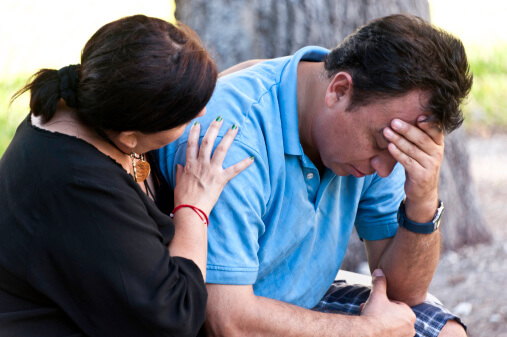Opioid is a broad umbrella term that covers prescription drugs like Vicodin or OxyContin as well as illegal street drugs, such as heroin. Even codeine, the substance you frequently find in prescription cough syrup, is an opioid. It’s important to remember that opioid dependence and addiction are two different sides of the same coin. Would you be able to tell if your loved had fallen victim to one or the other? If you can, it means it's time for opioid abuse treatment.

Dependence Versus Addiction
Let’s assume that your loved one has received a prescription painkiller after surgery. If everything progresses well, they’ll take the medication for a few days and then stop when the discomfort reaches a manageable level. But what happens if the pain continues? Your loved one may continue to take the medication for about a month and then go in for a refill.
However, at the 30-day mark, their body becomes accustomed to the steady influx of the opioid. It builds up a tolerance to the substance. As a result, the user has to increase the dose to achieve the same effect. The body now needs the opioid to achieve feelings of well-being. At this point, it’s fair to say that your loved one has developed an opioid dependence.
From dependence, there’s only a small step to addiction. What separates dependence from addiction is a shift in mindset. Suddenly, all your loved one can think about is getting the next dose of the medication. They may go to great lengths to obtain the next fix. All of this has the potential to lead to an overdose.
Signs of an Opioid Dependence Close to Addiction
The National Institute on Drug Abuse has a list of warning signs that point to the possible development of an abuse problem. When you look for common symptoms, three distinct traits stand out.
- Understanding that the drug is causing problems. If your loved one has resorted to doctor shopping or asking for leftover opioid medications from friends, it’s clear that there’s a problem since they won’t approach the physician who initially ordered the drugs.
- Drug use trumps professional and social obligations. If the opioid of choice is heroin, you’ll notice that your loved one is allowing drug use to become the focal point of their life. Relationships, a career, or an education no longer matter.
- Life revolves around drug use. The processes of getting the opioid, using it, dealing with the aftermath of the high, and craving the next experience become the meaning of life. Anything that doesn’t support these habits likely falls away.
Combine these traits with bouts of depression, euphoria, energy, and agitation, and you know that the opioid dependence is getting close to an addiction. It may have already shifted that direction.
Get Outside Help
Unless you have professional training on how to deal with someone suffering from opioid dependence, it’s crucial to bring in help. Even if your loved one doesn’t think that they’ll need assistance or that they have a problem, it’ll help you to discuss the situation with an expert in the field. At Pinnacle Peak Recovery, friendly professionals routinely deal with individuals suffering because of opioids. We’ll help you understand which role to take on to prevent an enabling setting for your loved one – particularly if they’re using heroin.
Learn about the importance of medically supervised detox and rehab treatments. Put yourself in a position to guide your loved to seek help in a nurturing environment. Call to 866-377-4761 to get in contact with professionals who actively work in drug rehab and gladly answer all your questions.

